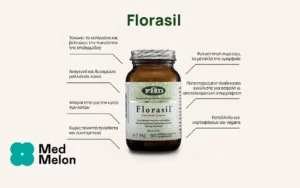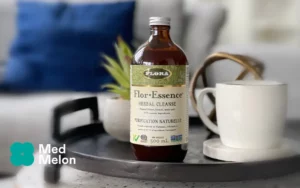Scientific Names of Grapefruit:
Citrus paradisi Macfad. [Fam. Rutaceae]
Forms:
Grapefruit juice; grapefruit extracts; and grapefruit oil extract for cosmetics.
Traditional Usage:
– Antibacterial (seed extract and oil in cosmetics)
– Antifungal (seed extract and oil in cosmetics)
– Anti-inflammatory
– Antimicrobial (seed extract and oil in cosmetics)
– Antioxidant
– Antiviral (seed extract)
– Astringent
– Cancer Prevention
– Cellular Regeneration
– Cholesterol Lowering
– Cleansing
– Detoxification
– Heart Health Maintenance
– High Cholesterol
– Inflammation
– Lupus nephritis
– Parasites (seed extract)
– Preservative (seed extract and oil used in cosmetics)
– Rheumatoid Arthritis
– Weight Loss
Overview:
Grapefruit, Citrus paradisi Macfad. [Fam. Rutaceae] is native to Jamaica but is largely cultivated in the United States. The skins of grapefruit may be yellow or pinkish and the pulp of the fruit may be yellow, pinkish, or reddish with a sharp, acidic, sweet taste and fragrance. Grapefruit is rich in vitamin C and potassium and is also a good source of folate, iron, calcium, and other minerals. The pink and red varieties are rich in beta-carotene, a precursor of vitamin A, and lycopene, an anticancer carotenoid also found in tomatoes and watermelon. It stimulates the appetite and is used for its digestive, antiseptic, tonic, and diuretic qualities. The fruit provides a good source of dietary fiber, as it is high in fiber and low in calories making it an ideal food to include in a sensible weight-loss diet. Grapefruits are especially high in pectin, a soluble fiber that helps lower blood cholesterol. The fruit also contains many bioflavonoids and other plant chemicals that protect against cancer and heart disease. Pink and red grapefruits are high in lycopene, an antioxidant associated with reduced risk of prostate cancer. A 6-year Harvard study involving 48,000 doctors and other health professionals has linked 10 servings of lycopene-rich foods a week with a 50 percent reduction in prostate cancer.
Other protective plant chemicals found in grapefruits include phenolic acid, which inhibits the formation of cancer-causing nitrosamines; limonoids, terpenes, and monoterpenes, which induce the production of enzymes that help prevent cancer; and bioflavonoids, which inhibit the action of hormones that promote tumor growth. Some people with rheumatoid arthritis, lupus nephritis, and other inflammatory disorders report that eating grapefruit daily seems to alleviate their symptoms, attributed to compounds that block inflammatory prostaglandins. Grapefruit oil and seed extracts are also used in cosmetic formulations as natural preservatives.
Grapefruit Seed Extract as an Excellent Preservative:
Non-published studies and testimonials report grapefruit-seed extract to be effective against more than 800 bacterial and viral strains, 100 strains of fungus, and a large number of single and multicelled parasites. A recent scientific study investigated grapefruit-seed extract for antibacterial activity at varying time intervals and concentration levels and tissue toxicity at varying concentrations in an effort to determine if a concentration existed that was both microbicidal and nontoxic and in what period of time. The tests indicated that from the 1:1 through the 1:128 concentrations, grapefruit-seed extract remained toxic as well as bactericidal. However, test results indicated that at the 1:512 dilution, grapefruit-seed extract remained bactericidal, but completely nontoxic. The initial data shows grapefruit-seed extract to have antimicrobial properties against a wide range of gram-negative and gram-positive bacteria at dilutions found to be safe. The mechanism of grapefruit-seed extract antibacterial activity was revealed using scanning electron microscopy. It was shown that grapefruit-seed extract disrupts the bacterial membrane and liberates the cytoplasmic contents within 15 minutes after contact even at more dilute concentrations.
Active Ingredients:
Grapefruit pulp contains significant levels of vitamin C; potassium, folate, calcium, and iron. The pink and red varieties also contain beta-carotene and lycopene, antioxidants that the body can convert to vitamin A. Other protective plant chemicals found in grapefruits include phenolic acid, limonoids, terpenes, monoterpenes, D-glucaric acid and flavonoids including hesperetin and naringenin. Grapefruit oil contains: nonanal, nootkatone, beta-Pinene, alpha-phellandrene, 3-carene, ocimene, octanol, trans-linalool oxide, cis-p-mentha-2,8-dien-1-ol, alpha-pinene, limonene, linalool, citronellal, alpha-terpineol, neral, dodecanal, and alpha-humulene. Compounds that are toxic to the Caribbean fruit fly (alpha-pinene, limonene, alpha-terpineol, and some aldehydes) decrease with time in storage, thus suggesting grapefruit becomes increasingly susceptible to the fly during storage. The Nutrition Information for whole grapefruits (Nutritional information per 100 g) is as follows: Water, 91%; Protein, 0.6g; Fat, 0.1g; Carbohydrates, 8g; Fiber, 0.6g and calories, 30 to 33.
Suggested Amount:
Half a grapefruit provides more than 50 percent of the adult Recommended Dietary Allowance (RDA) of vitamin C; it also has 325mg of potassium, 25mcg (micrograms) of folate, 40mg of calcium, and l mg of iron. The pink and red varieties are high in beta-carotene, an antioxidant that the body converts to vitamin A. A cup of unsweetened grapefruit juice has 95mg of vitamin C, more than 150 percent of the RDA, and most of the other nutrients found in the fresh fruit. Grapefruit is an ideal food to include in a sensible weight-loss diet as a serving contains less than 100 calories and its high-fiber content satisfies hunger. Grapefruit oil and grapefruit seed extract are used in cream formulations as natural preservatives.
Drug Interactions:
Grapefruit has serious interactions with many commonly prescribed medications and can lead to unpredictable and hazardous levels of certain important drugs. Grapefruit juice inhibits a special enzyme in the intestines that is responsible for the natural breakdown and absorption of many medications and when the action of this enzyme is blocked, the blood levels of these medications increase, which can lead to toxic side effects from the medications. Grapefruit juice research suggests that flavonoids and furanocoumarins are responsible for this effect. The following medications (and possibly others) should not be consumed with grapefruit juice unless advised by a doctor: Statins (Cholesterol Lowering Drugs): Baycol (Cerivastatin); Mevacor (Lovastatin); Lipitor (Atorvastatin); Zocor (Simvastatin). Antihistamines: Ebastine; Seldane (Terfenadine, taken off the U.S. market). Calcium Channel Blockers (Blood Pressure Drugs): Nimotop (Nimodipine); Nitrendipine; Plendil (Felodipine); Pranidipine; Sular (Nisoldipine); Psychiatric Medications: Buspar (Buspirone); Halcion (Triazolam); Tegretol (Carbamazepine); Valium (Diazepam); Versed (Midazolam). Intestinal Medications: Propulsid (Cisapride, taken off the U.S. market). Immune Suppressants: Neoral (Cyclosporine); Prograf (Tacrolimus). Pain Medications: Methadone. Impotence Drug: Viagra (Sildenafil). Other drugs may have potential interactions with grapefruit including: Amiodarone (Cordarone-₯); Cilostazol (Pletal-₯); Donepezil (Aricept-₯); Losartan (Cozaar-₯); Montelukast (Singulair-₯); Pimozide (Orap-₯); Quetiapine (Seroquel-₯); Tamoxifen (Nolvadex-₯) and Tamsulosin (Flomax-₯).
Contraindications:
Grapefruits are contraindicated for people who are allergic to citrus fruits as they are likely to react to grapefruits as well. The sensitivity may be to the fruit itself or to oil in the peel.
Side Effects:
Toxic blood levels of many medications can occur when patients taking them consume grapefruit or grapefruit juice. The high blood levels of the medications can cause damage to organs or impair their normal function, which can be dangerous. Do not consume grapefruit or grapefruit juice while taking medications or consult with your doctor before doing so.
References:
Cerda JJ, Robbins FL, Burgin CW, Baumgartner TG, Rice RW. 1988. The effects of grapefruit pectin on patients at risk for coronary heart disease without altering diet or lifestyle. Clin Cardiol 1988 Sep; 11(9): 589-94.
Hakim IA, Harris RB, Ritenbaugh C. 2000. Citrus peel use is associated with reduced risk of squamous cell carcinoma of the skin. Nutr Cancer 2000; 37(2): 161-8.
Heggers JP, Cottingham J, Gusman J, Reagor L, McCoy L, Carino E, Cox R, Zhao JG, Reagor L. 2002. The effectiveness of processed grapefruit-seed extract as an antibacterial agent: II. Mechanism of action and in vitro toxicity. J Altern Complement Med 2002 Jun; 8(3): 333-40.
International Cyber Business Services, Inc. (ICBS) 2002. Holisticonline.com Grapefruit Monograph. http://www.holistic-online.com/Herbal-Med/_Herbs/h_grapefruit.htm.
So FV, Guthrie N, Chambers AF, Moussa M, Carroll KK. 1996. Inhibition of human breast cancer cell proliferation and delay of mammary tumorigenesis by flavonoids and citrus juices. Nutr Cancer 1996; 26(2): 167-81.
Sun J, Chu YF, Wu X, Liu RH. 2002. Antioxidant and antiproliferative activities of common fruits. J Agric Food Chem 2002 Dec 4; 50(25): 7449-54.




